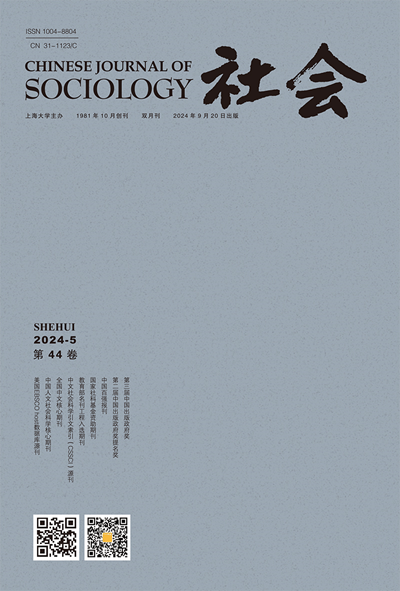Heroines who are rebuilding their country: State–society circumstances and coping strategies of female leaders in post-genocide Rwanda
IF 1.8
4区 社会学
Q2 SOCIOLOGY
引用次数: 0
Abstract
The labor arrangement of industrial society makes “production and reproduction” a contradiction that is both separate and interdependent. One of the significant consequences is the re-establishment of the responsibilities and boundaries of production and reproduction between the modern state, market, family, and gender. After the genocide against the Tutsi in 1994, Rwanda has made world-renowned achievements in advancing gender equality, especially women's participation in politics. It is the “twofold full-time producers” model that continuously sustains this huge achievement, which means that female leaders not only bear a highly demanding responsibility for production, comparable to men, but also undertake significant labor in social reproduction. The public policy of Rwanda has assumed a dual role in this process: on the one hand, the state has promulgated a series of gender equality bills, policies, and measures from top to bottom that actively promote women's equal rights in various fields, especially their political participation. On the other hand, against the background of a severe labor shortage and insufficient public welfare facilities, the responsibility of private families for social reproduction has been maintained and strengthened, while the traditional family structure and community culture's share of responsibility for reproduction has been irreversibly weakened during the conflict and modernization process. While these female leaders rely on their individual strategies and informal social support systems to cope with the dual burden, they still face scrutiny and doubt from the community culture. The consensus on the destiny of the country's development and the sharing of historical responsibilities demonstrated by Rwanda's female leaders shares many similarities with the Chinese women's liberation movement, which also provides an important inspiration and reference point for rethinking the path of women's liberation characterized by economic independence and “the supremacy of production”.正在重建国家的英雄:种族灭绝后卢旺达的国家-社会环境和女性领导人的应对策略
工业社会的劳动安排使“生产与再生产”成为一种既分离又相互依存的矛盾。其中一个重要后果是重新确立了现代国家、市场、家庭和性别之间生产和再生产的责任和界限。在1994年针对图西族的种族灭绝之后,卢旺达在促进性别平等,特别是妇女参政方面取得了世界知名的成就。正是“双重全职生产者”模式持续支撑着这一巨大成就,这意味着女性领导人不仅承担着与男性相当的高要求的生产责任,而且在社会再生产中承担着重要的劳动。卢旺达的公共政策在这一过程中发挥了双重作用:一方面,国家自上而下颁布了一系列性别平等法案、政策和措施,积极促进妇女在各个领域的平等权利,特别是她们的政治参与。另一方面,在劳动力严重短缺和公共福利设施不足的背景下,私人家庭对社会再生产的责任得到了维护和加强,而传统的家庭结构和社区文化对再生产的责任份额在冲突和现代化进程中被不可逆转地削弱。尽管这些女性领导人依靠个人策略和非正式的社会支持系统来应对双重负担,但她们仍然面临着来自社区文化的审视和怀疑。卢旺达女性领导人对国家发展命运和分担历史责任的共识与中国妇女解放运动有许多相似之处,这也为重新思考以经济独立和生产至上为特征的妇女解放道路提供了重要的启示和借鉴。
本文章由计算机程序翻译,如有差异,请以英文原文为准。
求助全文
约1分钟内获得全文
求助全文
来源期刊

社会
Social Sciences-Social Sciences (all)
CiteScore
1.70
自引率
0.00%
发文量
6799
期刊介绍:
The Chinese Journal of Sociology is a peer reviewed, international journal with the following standards: 1. The purpose of the Journal is to publish (in the English language) articles, reviews and scholarly comment which have been judged worthy of publication by appropriate specialists and accepted by the University on studies relating to sociology. 2. The Journal will be international in the sense that it will seek, wherever possible, to publish material from authors with an international reputation and articles that are of interest to an international audience. 3. In pursuit of the above the journal shall: (i) draw on and include high quality work from the international community . The Journal shall include work representing the major areas of interest in sociology. (ii) avoid bias in favour of the interests of particular schools or directions of research or particular political or narrow disciplinary objectives to the exclusion of others; (iii) ensure that articles are written in a terminology and style which makes them intelligible, not merely within the context of a particular discipline or abstract mode, but across the domain of relevant disciplines.
 求助内容:
求助内容: 应助结果提醒方式:
应助结果提醒方式:


